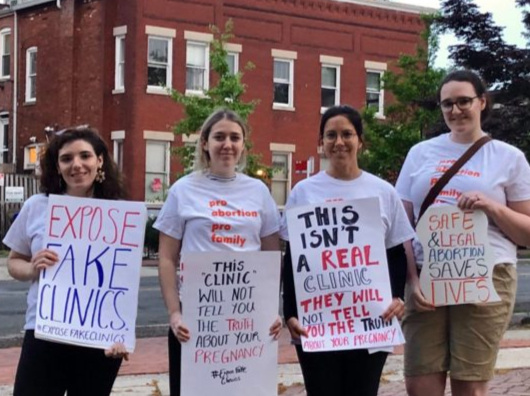The Abortion Conversation Projects (ACP) has chosen six new projects that are experimenting with strategies to address the stigma surrounding abortion. “We want to invest in innovative grassroots projects that engage people in conversation about abortion,” says Peg Johnston, Chair of ACP. The organization has now funded 73 Projects and offers support and expertise to both Grant Partners and applicants.
“Committed Citizen” is a new play in development by Abbe Tanenbaum. It centers around personal agency. The heart and inspiration for the piece are real letters written by women, pre-Roe and shortly after, seeking abortions from an underground clinic in New York. The international workshop will connect Three’s Theatre Company in Belfast, Northern Ireland and PACA in Erie PA. “The context of further developing the piece with actors in a country that has recently legalized abortion and those in an underserved city in the U.S. is extremely exciting to me,” explains Tanenbaum. “Powerful storytelling is one of the best tools to transform people’s understandings and facilitate compassion.” The performance on September 13, 2020 will be open to the public via zoom and be followed by a talkback. (For tickets, which can be free or with a donation go here.)
“Vicenas Feministas” is an ambitious project involving reproductive rights groups throughout Latin America. According to Andrea Verceros, “Each Latin American country is in a different stage of opening up access to abortion services and we want our messaging to be coordinated. The twelve organizations collaborating point out that “There is a danger that we will inadvertently stigmatize in debating the half measures offered.” The project will bring together leaders from nine countries to have talking points that all can embrace.
“Artivism” at Hartford GYN Center seeks to collaborate with patients and supporters in developing engaging artistic expressions, which will stand in stark contrast to the targeted harassment that has plagued Connecticut’s sole independent abortion provider for years. An installation of moveable panels with interactive components will welcome staff and patients into a beautiful and affirming space, while creating a constantly evolving mural that will generate conversations about abortion and breakdown stigma in unexpected places.
“The Choice: VR” is the amazing project of Joanne Aśka Popińska and her partner Tom C. Hall, who have filmed in Virtual Reality 6 people sharing their abortion stories. “Storytelling in VR is moving, memorable, and very effective in breaking down stereotypes, as it can resemble having an actual conversation,” she explains. Although this is a long and expensive project, ACP has been supportive of this innovation and hope to help them finish the editing so that these stories can be available. The team is currently working on releasing the first interview as the stand alone chapter that will be available to the audience. With this material, they will then seek resources to complete the full-scope project.
Telling Truer Stories: Music Album aims to continue the success of Telling Truer Stories (An Anthology for Safe and Legal Abortion), by putting stories to music. Tentatively titled "Pasya" or “Choice,” it features the musical collaboration of artists with abortion storytellers in the Philippines “to move the topic of abortion out of the stigmatized horror genre it’s been caged in for decades, and deliver it to listeners in an audio experience that is fun, liberating, and ultimately, more realistic,” according to Kristine Chan.
In addition, ACP is working with Viva Ruiz of “Thank God for Abortion” to validate that religious people can affirm abortion and women’s autonomy. According to Ruiz, a performance and installation artist, “I believe God wants us to be happy. My faith is joyful and celebrates women’s lives.”
The Abortion Conversation Projects is committed to eliminating the stigma of abortion by supporting individuals and small groups engaged in innovative community-based projects that create new ways and opportunities to talk about abortion honestly and publicly. It has awarded 73 Grant Partnerships since the program started in 2012. ACP fundraises approximately $12,000 each year to pay for seed grants and expenses. The ACP Board also offers consultations with people working on abortion stigma. For more information and to join the mailing list, consult ACP’s website at www.AbortionConversationProjects.org or the Facebook page.






